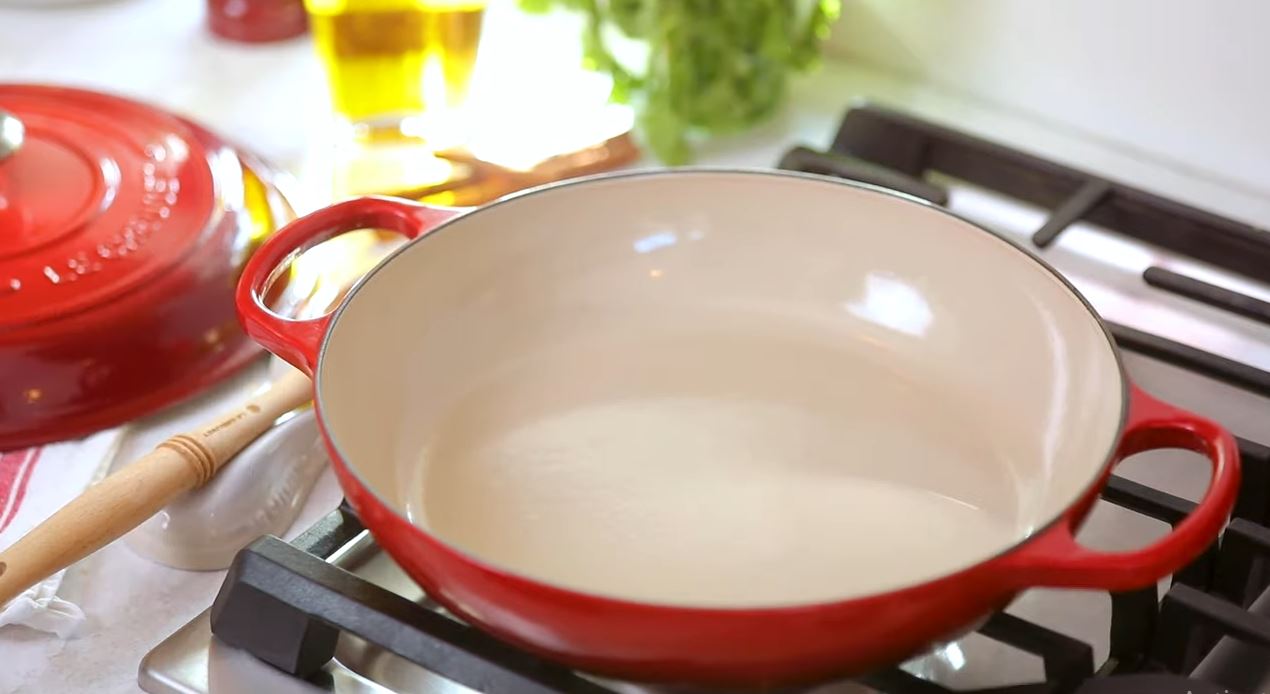Do You Need to Season Enameled Cast Iron? Enameled cast iron is a type of cookware that is made by coating traditional cast iron with a layer of enamel. The enamel is a glass-like coating that is fused to the cast iron surface, creating a smooth and non-stick surface. The enamel coating is made from a mixture of glass, pigments, and other materials that are heated to a high temperature and fused to the cast iron. The end result is a cookware that has many of the benefits of traditional cast iron, but with a few key differences.
Seasoning cast iron is the process of creating a natural, non-stick surface on the pan. This is done by heating oil or fat on the surface of the pan until it forms a polymerized coating. This coating will protect the pan from rust and other types of corrosion, and also provide a non-stick surface for cooking.
What is Enameled Cast Iron?
Enameled cast iron is a type of cookware that is made by coating traditional cast iron with a layer of enamel. The enamel is a glass-like coating that is fused to the cast iron surface, creating a smooth and non-stick surface.
Advantages of enameled cast iron include:
- It does not require seasoning like traditional cast iron
- The enamel coating prevents rust and other types of corrosion
- It has a smooth, non-stick surface for easy cooking and cleaning
- It is safe for use in the oven, dishwasher, and on all cooktop surfaces, including induction.
Disadvantages of enameled cast iron include:
- It is more expensive than traditional cast iron
- The enamel coating can chip or crack if dropped or mishandled
- It is not as durable as traditional cast iron
Do You Need to Season Enameled Cast Iron?
Seasoning cast iron is the process of creating a natural, non-stick surface on the pan. This is done by heating oil or fat on the surface of the pan until it forms a polymerized coating. This coating will protect the pan from rust and other types of corrosion, and also provide a non-stick surface for cooking.
While traditional cast iron cookware requires seasoning, enameled cast iron does not. The enamel coating on the surface of the pan provides a non-stick surface for cooking, eliminating the need for seasoning. However, some people still choose to season enameled cast iron for added flavor and to protect the enamel coating from scratches.
Pros of seasoning enameled cast iron
- It can add flavor to food
- It can protect the enamel coating from scratches
- It can help to keep the pan in good condition over time
Cons of seasoning enameled cast iron
- It is not necessary, as the enamel coating provides a non-stick surface
- Over-seasoning can lead to a buildup of excess oil, which can be difficult to clean
- It can shorten the lifespan of the enamel coating.
How to Season Enameled Cast Iron
To season enameled cast iron, you will need:
- Enameled cast iron pan
- Oil or fat (such as vegetable oil, flaxseed oil, or melted shortening)
- Oven or stove
- Foil
- Paper towel or clean cloth
Step-by-step instructions:
- Preheat the oven to 350°F.
- Place the enameled cast iron pan in the oven and allow it to preheat for 15-20 minutes.
- Remove the pan from the oven and place it on the stovetop.
- Apply a small amount of oil or fat to the surface of the pan, using a paper towel.



